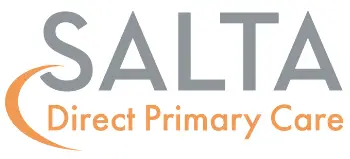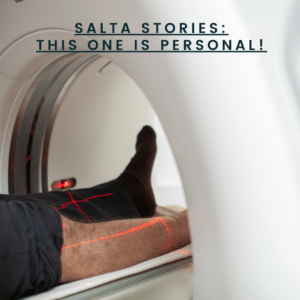Hello everybody, my name is John Blanchard I am a family physician with SALTA Direct Primary Care here in Michigan and I am here again in the COVID camper. I am here again to explain what is going on with COVID in Michigan. Today is April 13th and this is the 21st day that I have been living in here in the camper.
We have a question from Julie on Facebook asking about whether there’s any treatments that are currently used for cystic fibrosis that can be used to treat the COVID virus. People with cystic fibrosis are at higher risk of serious illness from COVID because the condition ins a genetic condition that can affect the lining of the lungs and COVID also attacks that. There is not any good research out at this point that any treatments for cystic fibrosis can help in the treatment of COVID so we are keeping an eye on anymore research that may come out.
Greg asked if there’s any more testing capability in the state of Michigan and if you go to Michigan.gov/coronavirus there was just a press release that testing in Michigan has been expanded. There is additional testing in Detroit and Flint. We are going to put all the location and phone numbers to call for testing on our Facebook page. There are still criteria that you have to meet before you can get tested at these areas and they want to you to call ahead. They will triage you over the phone if you can get your test complete. You will start to see more and more testing sites available, and this is crucial to be able to get those tested who need it and continue once the quarantine is released.
Jim asked about the different treatments that are available currently for COVID. There are things he is hearing on the news and one of them being convalescent plasma transfusion. This is where we take plasma from someone who has antibodies from COVID and transfuse it into someone who is really sick with COVID. There are ongoing studies about this treatment currently. You will also hear a lot about viral medications as COVID is virus there’s different types of antiviral medications being testing in the treatment. You will hear the words immune modulators. These are medication that we use that can down regulate the immune response especially late in the illness when you can have a cytokine storm…which is your immune system going into overdrive and we think that is driving a lot of these serious illness that’s occurring in people and problems with respiratory failure. There are certain medications that can be used to target certain aspects of that immune response and down regulate it. Again, those studies are ongoing and then you’ve probably heard of hydroxychloroquine which is a medication that was previously used for malaria prophylaxis and treatment of malaria. Again, there are studies going on and it is not recommended for the public to use until it comes out showing it is safe and effective.
One positive thing that I hope comes out of this experience is again, learning about mindfulness. As lots of people are stuck at home in stressful situations it is a great time to learn more about mindfulness. One of the things that we are addressing in these videos is understanding that we can fall into thought distortions. It is important to identify when you are falling into a thought distortion and change it to a positive way of thinking. We have covered black and white thinking, personalization, should statements, and today we are going to cover catastrophizing. Somebody may be catastrophizing when they take a small unfortunate event and make it into a big problem. Someone may not do well on a test and think they are going to fail the course, or they might not even have taken the test and think they are already going to fail the course. A couple may have a small argument and one may think it could lead to a divorce. All of these are examples of catastrophizing. When we do this, it drives a lot of stress response, so it is important to catch ourselves and make sure that we are not falling into that thought distortion.
One of the reasons I like being a direct primary care physician at SALTA Direct Primary Care is that we don’t work for the insurance companies, we work for our patients. We don’t bill insurance therefore our patients pay a monthly membership fee; it is usually around $90 per member and $45 for ages 26 or younger. For this they receive all the primary care they can consume for the month. This always made sense to me because I have never understood why we have insurance for primary care. Insurance is for something that is catastrophic that happens infrequently, something that is financially catastrophic that happen infrequently. Primary care is something that happens frequently and is inexpensive. So, it’s not something that should be subjected to insurance it should be something paid for directly from the patient. Therefore, we call it direct primary care. If you think about it, it is like car insurance. You wouldn’t buy car insurance for windshield wipers or your breaks. Somehow, we think primary care should be subjected to health insurance and it has never made sense to me. It makes much more sense for people to pay directly for primary care.
If you want to learn how direct primary care can work for you, feel free to call Kyle at 248.922.3076. Kyle can answer all your questions and see what six of our locations is best for you or your company near you! You can also follow us on Facebook @salta_directprimarycare. OR you can search us on Google stating, “direct primary care near me!” or join right on our website at saltadirect.com
Stay safe out there! Love each other and we will see you again soon!




